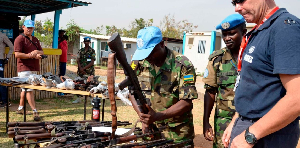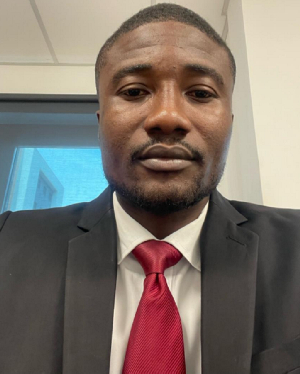Survey Shows a Record 40 Percent of World Is Free
NEW YORK (Reuters) - A report on worldwide democracy and human rights released on Wednesday found major progress in those areas in Mexico and Yugoslavia, with over 40 percent of the world's population living in free nations.The Freedom House report, ``Freedom in the World 2000-2001,'' said 86 countries, representing 2.5 billion people, or 40.7 percent of the world's population, were ``free,'' the highest proportion given that rating in the history of the survey, which dates to 1981. Inhabitants of those countries enjoy a broad range of rights.
Another 59 countries, encompassing 1.4 billion people, or 23.8 percent of the world's population, were described as ''partly free,'' with limited political liberties and civil rights.
Finally, 35.5 percent of the world's people live in the 47 nations considered not free, where citizens are denied basic political rights and civil liberties, according to Freedom House.
The study found that the economies of free countries grew over a nine-year period at a rate 70 percent higher than the average for countries that were not free, with an even more marked difference among poor nations.
Elections Hailed
It said the biggest strides toward democracy and freedom had taken place in Mexico, where the election of President Vicente Fox brought democracy to Mexico after more than 70 years of virtual one-party rule by the Institutional Revolutionary Party (PRI), and Yugoslavia, where the election of President Vojislav Kostunica brought an end to the bloody rule of Slobodan Milosevic, ``giving rise to hope for genuine peace in the Balkans.''
Four countries -- Croatia, Ghana, Mexico and Suriname -- moved from partly free to free.. Twenty-five other countries made progress, while 18 regressed
Other nations praised included the Philippines, Indonesia and Taiwan, all of which saw crackdowns on corruption or charges brought against government or military officials, and Peru, where the resignation of President Alberto Fujimori was followed by gains for political freedom, human rights and the rule of law, Freedom House said.
Setbacks for freedom took place in the Mideast, with the renewed Israeli-Palestinian conflict, and Russia and Ukraine, which saw an erosion in political liberties.
A move against Venezuela's trade unions by President Hugo Chavez earned the South America country a black mark, while prospects for reform in Iran waned when conservative clerics led a backlash against the press and moderate figures, according to Freedom House.
Africa Threat Seen
Civil war and ethnic conflict in Africa engulfed much of the continent, with the possible widening of civil strife in Sierra Leone to Guinea and neighboring states, the report said.
But the group reserved its ``worst of the worst'' status for Afghanistan, Burma, Cuba, Equatorial Guinea, Iraq, Libya, North Korea, Saudi Arabia, Sudan, Syria and Turkmenistan, 11 nations in which citizens are denied a broad range of even the most basic freedoms, it said.
Democracy and freedom were most entrenched in Western Europe, which was 100 percent free, and least prevalent in the Middle East, where 71 percent of 14 countries were rated not free.
In evaluating nations, the survey drew on hundreds of publications and organizations for two sets of checklists, one for political rights and one for civil liberties.
Political rights enable people to participate freely in the political process, including voting and running for public office, while civil liberties cover the development of views, institutions and personal autonomy independent of the state.
Founded by Eleanor Roosevelt, among others, Freedom House describes itself as a nonpartisan organization working to fight for freedom by resisting totalitarian threats and supporting popular aspirations for freedom, peace and security.












